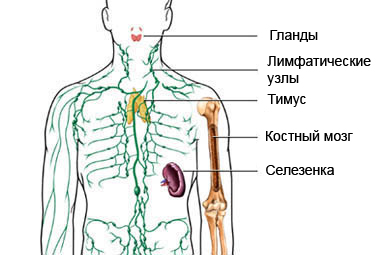Immunoglobulin – intravenous
Description of intravenous immunoglobulin
Immunoglobuliny – special blood proteins, help the body to fight infections. Immunoglobulins produce white blood cells (leukocytes), also known antibodies. Antibodies are important for the immune system. When immunoglobulin therapy (VVYH), immunoglobulins additional donor is introduced into the patient's blood.

Causes of intravenous immunoglobulin
Immunoglobulin is used to treat diseases and disorders of the immune system, such as:
- Autoimmune diseases, when the body begins to attack its own cells;
- Immunodeficiency – low functionality of the immune system;
- Inflammatory diseases;
- Other diseases, that weaken the immune system.
Injection immunoglobulin may also reduce inflammation in the body. Some diseases, including acute infections, require the introduction of immunoglobulin to restore antibodies and boost the immune system.
Possible complications of intravenous immunoglobulin
Complications are rare, but no procedure does not guarantee the absence of risk. Before, how to perform IVIG, you need to know about possible complications, which may include:
- Headache;
- Infection;
- The liquid in the lung;
- Damage to the kidneys;
- Blood clots;
- An allergic reaction to IVIG.
How is intravenous immunoglobulin?
Preparation for the procedure
Before the procedure, do not need any special training. Before the injection is carried out, the survey is conducted for viruses, diseases and infections.
Procedure IVIG
In a healthy person will be selected concentrated immunoglobulin antibody. This antibody solution was added sterile.
The vein in your arm is inserted into the needle. The solution is injected into a vein through a drip.
How long will intravenous immunoglobulin?
About 5-6 hours.
Intravenous immunoglobulin – Will it hurt?
This procedure is not painful. Perhaps some of the needle when administered into the skin.
Treatments after IVIG
In place of, where the needle was inserted, may cause irritation. If this happens, you should consult with your doctor.
You can see the improvement in symptoms after 24-48 hours after treatment. In some patients, improvement comes only through 3-4 of the week.
Immunoglobulin therapy is usually carried out in several cycles. If signs of infection or other immunodeficiency, intravenous immunoglobulin, usually, It recommended every 3-4 of the week. If you have a neurological or autoimmune disease, Treatment is carried out over five days a month for 3-6 months. After the initial treatment, every 3-4 week maintenance therapy.
Contact your doctor after intravenous immunoglobulin
With the introduction of any foreign substance or chemical to the organism exists the possibility of allergic reactions. If you are experiencing any of the above symptoms of anaphylactic shock (a severe allergic reaction), you should immediately call a doctor:
- Shortness of breath and / or difficulty breathing;
- Confusion;
- Slurred or abnormal speech;
- Fast and heart palpitations, weak or rapid pulse;
- Blue skin color, lips or fingernails;
- Dizziness, weakness;
- Hives, rash or itching;
- Anxiety;
- Nausea, vomiting, diarrhea, abdominal cramping;
- Cough or nasal congestion;
- Erythema.
